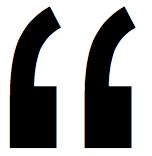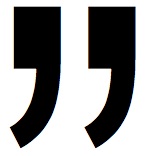IN HIS OWN WORDS
Bill Giles reflects on major moments in his career,
the state of the game and the Phillies.
On the Phillies’ success during the 1970s and early ’80s ...
“It was a lot of fun building up. In 1971, we still weren’t very good, but we had a lot of people coming up like (Larry) Bowa and (Mike) Schmidt and others, and you could see the potential coming down the road. Paul Owens was the general manager, and he had a real knack for finding talent, and we were an effective tandem. We worked well together. I’ve often said the ’77 team was actually the best team the Phillies ever had, but we got beat by the Dodgers in the playoffs.”
On putting together the bid group for the Phillies in 1981 ...
“It was interesting why some people ultimately decided to invest. The Buck family were the first to come in and they had been season-ticket holders and were Phillies lovers from way back. The second guy who put money in was a guy named Jack Betz, who owned a water-purifying company. I went knocking on his door and talked with his financial adviser. His financial adviser called Jack and said, ‘I’ve got this guy who wants you to invest $5 million to buy the Phillies.’ Jack said, ‘You know, I’m more of an Eagles fan.’ His wife hears this and says, ‘Oh, the Phillies? You know I love Tug McGraw, I love the Phillie Phanatic and we need a better parking pass for the Eagles.’ So they put in $5 million to get a better parking pass.”
On a 1993 owners meeting in Kohler, Wis., in which teams were
bitterly divided on creating revenue sharing ...
“Revenue sharing was by far the biggest battle I’ll ever remember. To get some people in the game to accept revenue sharing was a hell of an accomplishment. Kohler was a bloodbath. You had the ‘haves’ meeting in one room, the ‘have-nots’ meeting in another, and we had to send an emissary to communicate between them. Initially, we were in the haves. But I heard more arguments, and Dave Montgomery ultimately convinced me that revenue sharing was a good idea. And actually, one of the key players in that whole bit around revenue sharing was (Rangers owner at the time) George W. Bush. He was a peacemaker in that situation and deserves credit for that.”
On the 1994 strike ...
“The worst thing that ever happened in my business career was the ’94 strike. That almost destroyed me. I could not believe we couldn’t play the World Series. I was pretty emotional about it and depressed. I would talk to Bud (Selig) and told him we couldn’t let this happen and that we’ve got to play the postseason. But he held the line. The acrimony between the league and union in those days was obviously pretty bad. But Bud did a heck of a job eventually creating labor peace and changing the whole way of doing business and instead of being confrontational trying to be cooperative. … Pushing for the [salary] cap was probably a mistake. We were never going to get the cap. Maybe some people thought we would, but I didn’t.”
On the design influences he brought into the
development of Citizens Bank Park ...
“When I was a kid growing up, my dad used to take me to Wrigley Field. So we have a lot of Wrigley Field ideas — ivy in center field, a lot of brick. I didn’t want any cement or aluminum showing. I wanted brick and grass. And I wanted to make sure people on the lower level went down to their seats, because if you do that, it feels like a more important seat. And I wanted it to be fun, and we had the idea of creating sort of an Atlantic City-style boardwalk in the outfield."
On the Phillies’ new leadership structure of Managing Partner John Middleton and President Andy MacPhail ...
“I think it’s going to work well. When [Montgomery] had his illness, it became necessary. But I’ve been very impressed with Andy. He’s well-liked, and I’ve known him for a long time. It’s amazing — my father replaced his grandfather [as Reds general manager] back in 1936. And I knew Andy’s father, Lee, quite well. So the MacPhail and Giles families have been around for a while. The team now is getting better. We have more talent in the farm system, and hopefully next year it will start showing.”
On his management style ...
“I tried to operate the franchise like a family. I kept preaching to the front office and the players that we’re all in this together. So I was close to a lot of the players, particularly back in the ’80s.”





